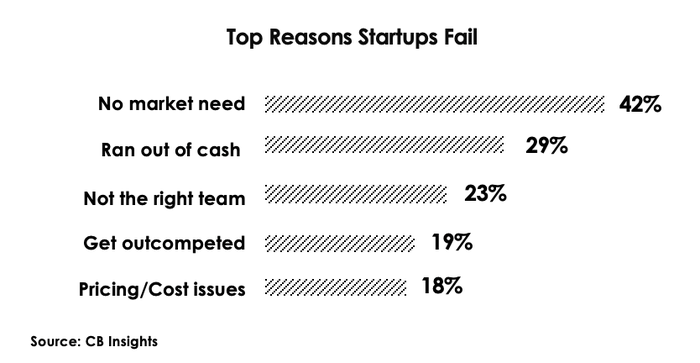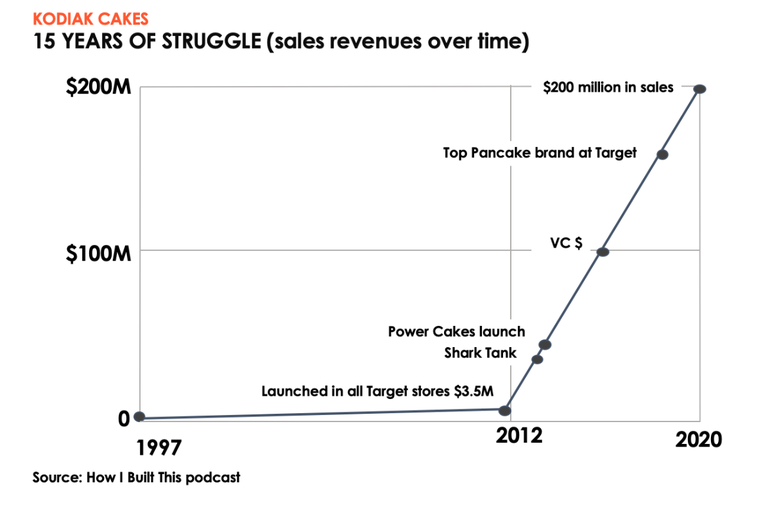Startups die when entrepreneurs give up
If your business is failing, it's probably because you haven't yet realized this one thing.

This is not a motivational piece, but I promise you’ll feel better after reading. I’m quoting Andy Dunn, the co-founder of Bonobos, who once said, “Companies don’t die because they fail, but because entrepreneurs give up.” And I know what he meant.
If you’re failing—and you know it because you feel it—it’s probably because you haven’t realized product/market fit.
What is product/market fit?
Market is defined as the size and growth rate of addressable consumers for a product. And it’s the only thing that matters to a startup. It correlates more to success than anything else. More than team. More than product.
I see a lot of great founders (smart, scrappy, focused) and great products (tasty, healthy, sustainable) that never make it. There can be lots of excuses: The grocery industry is corrupt, team members can’t be trusted, made a bad deal with a copacker/partner/investor—but typically those are not the true cause. The real reason is they didn’t have a market.

How do you know if you’ve reached product/market fit?
Oh, you’ll know. The reorders come through at lightning speed. Your Instagram blows up. You have to hire more people. You need to cover ever-larger receivables from reputable customers. Buyers that wouldn’t return your emails are suddenly reaching out to you.
Your dreams can still come true
If you haven’t reached product/market fit, it can still happen. There are plenty of examples of entrepreneurs who should have quit but hung in there and finally made it.
Just look at Kodiak Cakes. Its timeline to get to product/market fit was an arduous, tumultuous 15 years of failure after failure. This is an extreme case of taking forever to get to product /market fit and I hope none of you replicate this story—and I mean no disrespect to its co-founder Joel Clark—because I think he would agree with me.
The idea came from Joel’s mom’s recipe for whole grain pancake mix. It was a great product and a lot of people loved it, but for years Joel couldn’t get the company to cash flow. Saddled with debt and bad luck (things like a real estate deal just before the 2008 collapse, a failed cookie shop, a bad promotion with Safeway that nearly bankrupt the company, etc.), Kodiak Cakes wouldn’t hit its stride until the protein-for-breakfast craze started trending. The company went on "Shark Tank" just before launching a whey protein infused mix, Protein Power Cakes. That’s when things really took off.

Joel had every reason to throw in the towel along the way. The only reason the business didn’t die is because he never quit. It never thrived, however, until he got to product/market fit.
Do whatever you have to do to achieve product/market fit as soon as possible. Nothing else matters more. In the case of Kodiak Cakes, the company innovated its product for protein when the market demanded protein and the magic happened. For some of you, it might mean a pivot, like moving your product to a different market.
Jennifer Barney is an advisor and consultant to food and ag businesses at 3rd & Broadway. She previously founded the almond butter brand Barney Butter.
About the Author(s)
You May Also Like




